Understanding Dual Enrollment
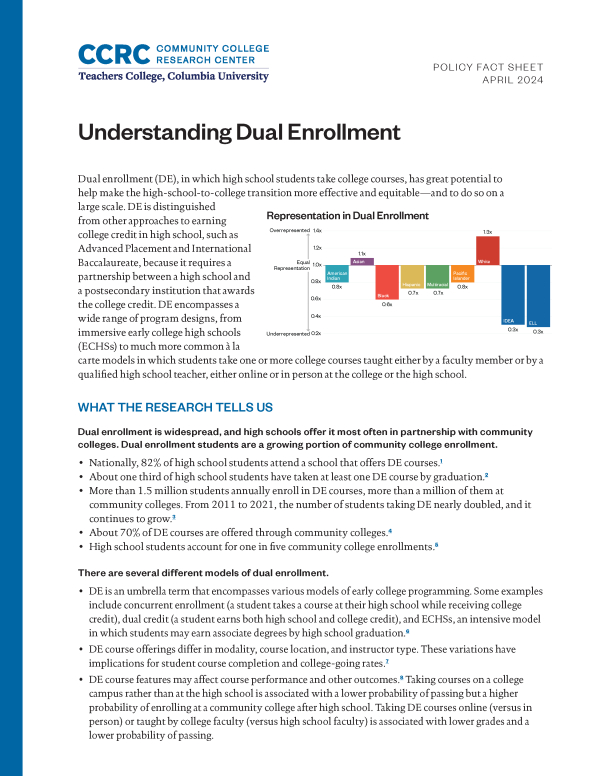
This fact sheet describes the growth of dual enrollment, the various models and funding mechanisms, and steps colleges and high schools can take to make dual enrollment more equitable.
How States and Systems Can Support Practitioner Efforts to Strengthen Dual Enrollment
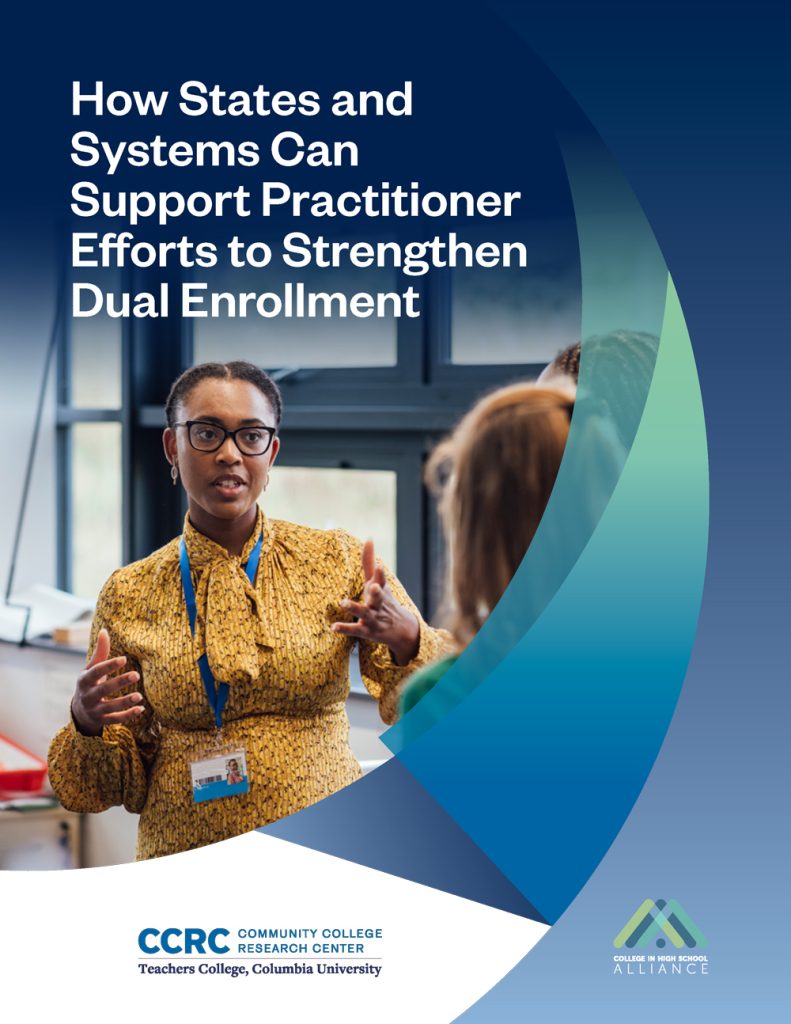
Informed by findings from The Dual Enrollment Playbook and site visits to Title I high schools and their community college partners in Texas and Florida, this report offers guidance for state leaders on how to support practitioner efforts to broaden the benefits of dual enrollment.
Greater Equity in College Access Through High School/College Dual Enrollment Programs
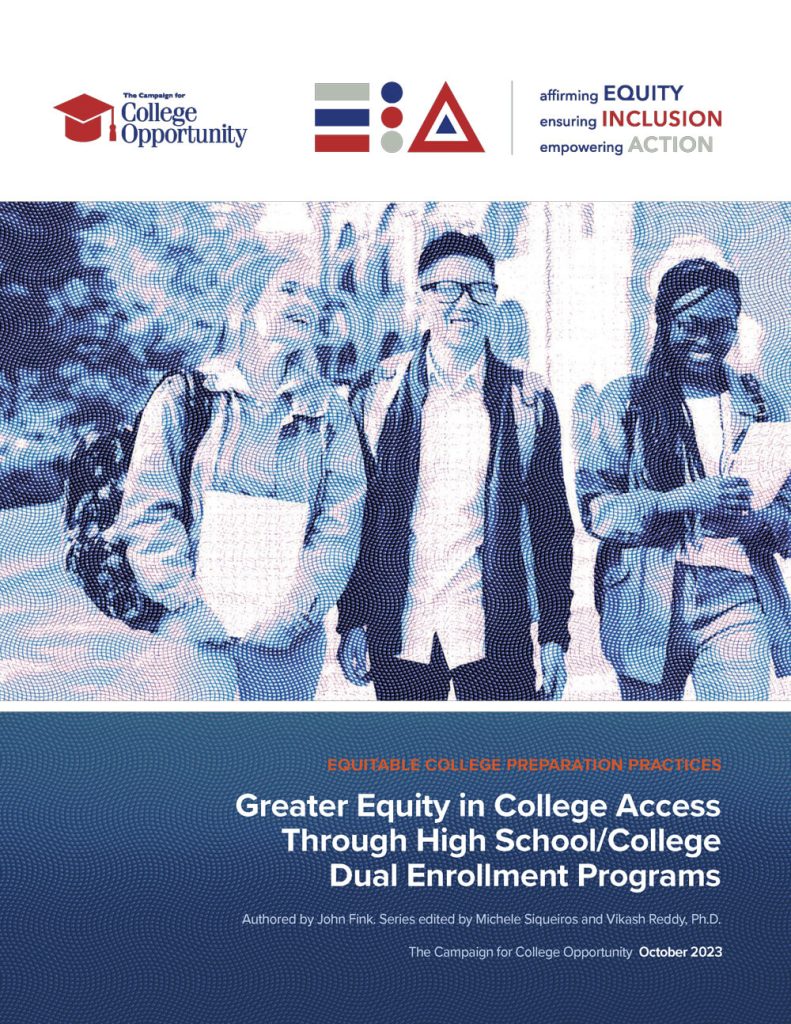
The brief, published by The Campaign for College Opportunity, summarizes the research on dual enrollment programs and offers policymakers a strategy to increase college enrollment and attainment via such efforts.
Rethinking Dual Enrollment as an Equitable On-Ramp to a Career-Path College Degree Program After High School
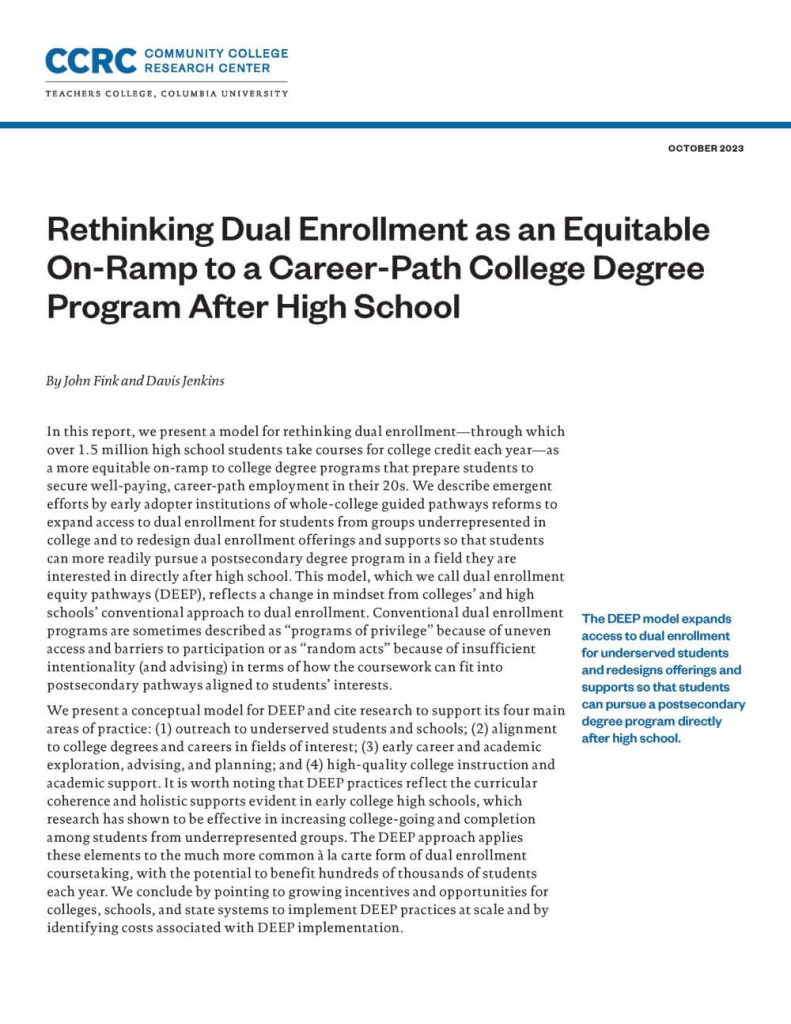
This report presents the dual enrollment equity pathways (DEEP) framework, which aims to expand access to dual enrollment and redesign practices so that underserved students can use it to pursue a high-value postsecondary degree program directly after high school.
DEEP Insights: Redesigning Dual Enrollment as a Purposeful Pathway to College and Career Opportunity
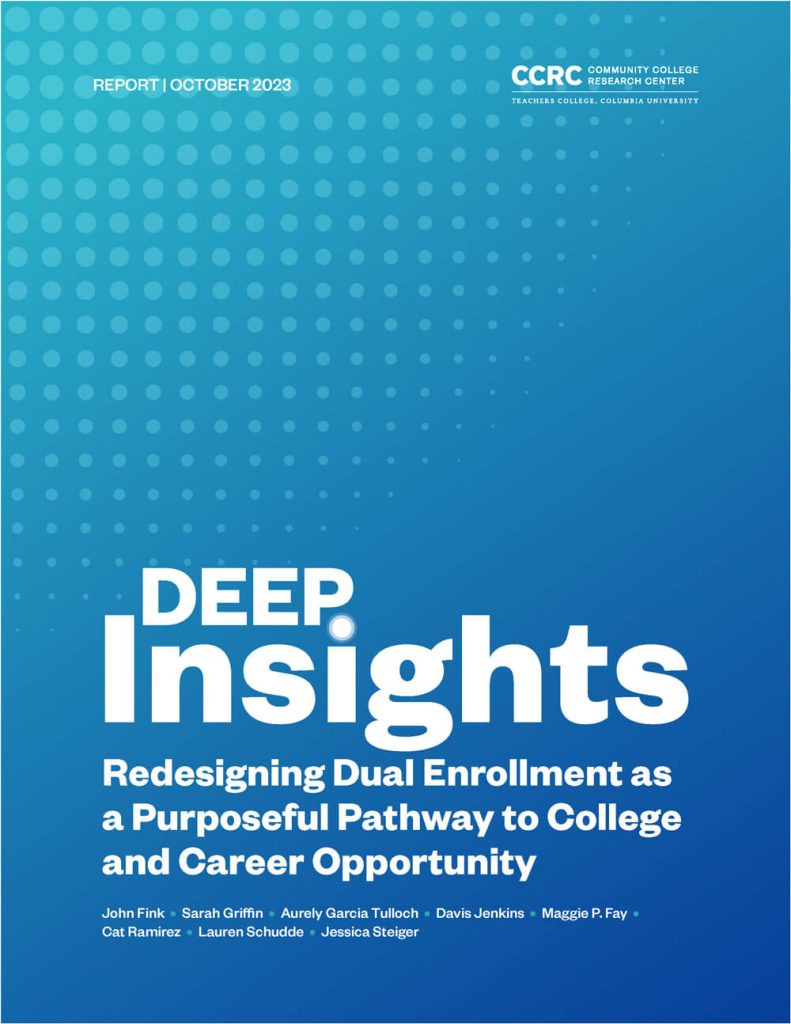
This report describes dual enrollment equity pathways (DEEP) reforms implemented by six community college–K-12 partnerships in Florida and Texas, and it provides insights and guidance for other colleges and schools interested in undertaking DEEP reforms.
